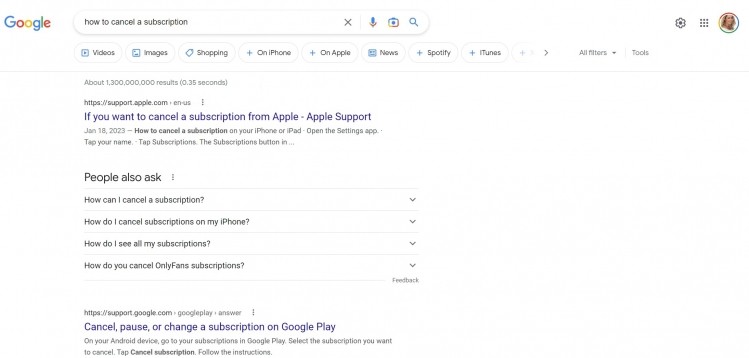Cancel culture: FTC proposes ‘click to cancel’ provision

The Federal Trade Commission recently proposed a “click to cancel” provision that would require sellers to make it as easy for consumers to cancel their enrollment as it was to sign up. Under the proposed change, companies would have to offer consumers the option to cancel a subscription using at least the same method they used to sign up; if a customer signed up for a service online or by phone, they would have to be able to cancel online or by phone.
“Some businesses too often trick consumers into paying for subscriptions they no longer want or didn’t sign up for in the first place,” said FTC Chair Lina M. Khan. “The proposed rule would require that companies make it as easy to cancel a subscription as it is to sign up for one. The proposal would save consumers time and money, and businesses that continued to use subscription tricks and traps would be subject to stiff penalties.”
The new provision is an effort aimed at helping consumers cancel unwanted subscriptions–a task that yielded about 1,300,000,000 results when Googled.
The notice of proposed rulemaking, announced last week, is part of the FTC’s ongoing review of its 1973 Negative Option Rule, which the agency uses to combat unfair or deceptive practices related to subscriptions, memberships, and other recurring-payment programs. The Commission said it received about 17,400 complaints about negative-option-related violations in 2022.
Lauren Aronson, Advertising and Consumer Protection Partner at Amin Talati Wasserman LLP, explained that the FTC proposal would update its old ‘Negative Option Rule,’ which was originally written in the world of ‘Book of the Month’ – models, so that it applies to today’s online and mobile world. The update would create a single regulatory framework governing all subscription models in all media along with clearer guidelines for marketers to follow.
Aronson said that there are two key elements in the proposed Rule that are particularly noteworthy:
- The proposed rule would require a simple cancellation mechanism at least as simple as initiation, which the FTC describes as “click to cancel.” The FTC states that “On the Internet, this “Click to Cancel” provision requires sellers, at a minimum, to provide an accessible cancellation mechanism on the same website or web-based application used for sign-up.” While other mechanisms of cancellation can be offered, supplement companies should have an easy to find link to click to allow for online cancellation – and not require consumers to have to call on the phone. Many state laws already require online cancellation and the FTC has made it a requirement in settlement orders, but the new Rule provides added guidance around what that online cancellation mechanism needs to look like.
- The FTC now provides additional guidance on “saves,” which are attempts by the company to convince the customers not to cancel. The proposed rule states that a save attempt is only permissible if the company has unambiguous affirmative consent to receive a save prior to cancellation. This means that the supplement companies have to ask something like: “Would you like to hear about any additional offers that may change your mind about canceling?” or similar and get a clear “yes.”
How onerous would it be for brands to adjust subscription models to meet these new requirements?
“Responsible brands should already have an online cancellation mechanism in place because many states are now requiring it (e.g., California),” said Aronson. “With likely increased FTC enforcement to come, they should ensure that it’s easy to find, easy for the consumer to understand, and easy to use without multiple, extra steps to cancel. Additionally, brands should take a close look at their sign up to make sure that the cancellation mechanism is just as easy – if the consumer can sign up with one click, they must be able to cancel with one click.”
Aronson added that subscription models, if done correctly, can be a great benefit for consumers and business models for companies. “However, just like structure/function claims, supplement companies need to know that the FTC and the states are watching to ensure that they aren’t being used to deceive consumers. It will be important to continue to monitor for regulatory developments, and tweak consumer interfaces accordingly,” she said.
Joshua Schall, MBA, President, J. Schall Consulting, echoed a similar sentiment: “While making subscription cancellation easier might marginally elevate average churn rates across the supplement industry, companies already acting ethically shouldn't worry too much about that outcome because it takes their eye off the ball. In an increasingly competitive marketplace, companies must focus on strategies that consistently reinforce and elevate the perceived value above and beyond the cost of the subscription,” Schall said.
“Struggles to easily cancel subscriptions has become a common pain point, but consumers usually continue transacting in this way with brands for a multitude of reasons. This includes the fact that consumers tend to choose brands as a way to construct and communicate identities.”
What's next?
The rules have not yet been finalized and the public will have an opportunity to comment on the proposal once the Notice of Proposed Rulemaking is published, when the public will have 60 days to comment.
The agency also said it was not claiming any new legal authority, but the rule would allow regulators to enforce against deceptive practices related to subscription cancellations without having to litigate each violation in a court.









